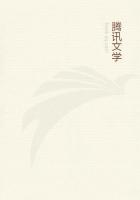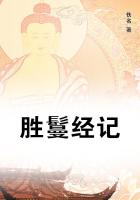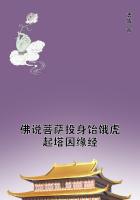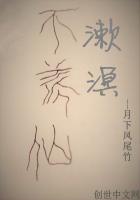15. Mathematics an instance of this. That these two (and not the relying on maxims, and drawing consequences from some general propositions) are the right methods of improving our knowledge in the ideas of other modes besides those of quantity, the consideration of mathematical knowledge will easily inform us. Where first we shall find that he that has not a perfect and clear idea of those angles or figures of which he desires to know anything, is utterly thereby incapable of any knowledge about them. Suppose but a man not to have a perfect exact idea of a right angle, a scalenum, or trapezium, and there is nothing more certain than that he will in vain seek any demonstration about them. Further, it is evident that it was not the influence of those maxims which are taken for principles in mathematics that hath led the masters of that science into those wonderful discoveries they have made. Let a man of good parts know all the maxims generally made use of in mathematics ever so perfectly, and contemplate their extent and consequences as much as he pleases, he will, by their assistance, I suppose, scarce ever come to know that the square of the hypothenuse in a right-angled ******** is equal to the squares of the two other sides. The knowledge that "the whole is equal to all its parts," and "if you take equals from equals, the remainder will be equal," &c., helped him not, I presume, to this demonstration: and a man may, I think, pore long enough on those axioms without ever seeing one jot the more of mathematical truths.
They have been discovered by the thoughts otherwise applied: the mind had other objects, other views before it, far different from those maxims, when it first got the knowledge of such truths in mathematics, which men, well enough acquainted with those received axioms, but ignorant of their method who first made these demonstrations, can never sufficiently admire. And who knows what methods to enlarge our knowledge in other parts of science may hereafter be invented, answering that of algebra in mathematics, which so readily finds out the ideas of quantities to measure others by;whose equality or proportion we could otherwise very hardly, or, perhaps, never come to know?
Chapter XIII
Some Further Considerations Concerning our Knowledge 1. Our knowledge partly necessary, partly voluntary. Our knowledge, as in other things, so in this, has so great a conformity with our sight, that it is neither wholly necessary, nor wholly voluntary. If our knowledge were altogether necessary, all men's knowledge would not only be alike, but every man would know all that is knowable; and if it were wholly voluntary, some men so little regard or value it that they would have extreme little, or none at all. Men that have senses cannot choose but receive some ideas by them; and if they have memory, they cannot but retain some of them;and if they have memory, they cannot but retain some of them; and if they have any distinguishing faculty, cannot but perceive the agreement or disagreement of some of them one with another; as he that has eyes, if he will open them by day, cannot but see some objects and perceive a difference in them. But though a man with his eyes open in the light, cannot but see, yet there be certain objects which he may choose whether he will turn his eyes to; there may be in his reach a book containing pictures and discourses, capable to delight or instruct him, which yet he may never have the will to open, never take the pains to look into.
2. The application of our faculties voluntary; but, they being employed, we know as things are, not as we please. There is also another thing in a man's power, and that is, though he turns his eyes sometimes towards an object, yet he may choose whether he will curiously survey it, and with an intent application endeavour to observe accurately all that is visible in it. But yet, what he does see, he cannot see otherwise than he does. It depends not on his will to see that black which appears yellow; nor to persuade himself that what actually scalds him, feels cold. The earth will not appear painted with flowers, nor the fields covered with verdure, whenever he has a mind to it: in the cold winter, he cannot help seeing it white and hoary, if he will look abroad. Just thus is it with our understanding: all that is voluntary in our knowledge is the employing or withholding any of our faculties from this or that sort of objects, and a more or less accurate survey of them: but, they being employed, our will hath no power to determine the knowledge of the mind one way or another; that is done only by the objects themselves, as far as they are clearly discovered. And therefore, as far as men's senses are conversant about external objects, the mind cannot but receive those ideas which are presented by them, and be informed of the existence of things without: and so far as men's thoughts converse with their own determined ideas, they cannot but in some measure observe the agreement or disagreement that is to be found amongst some of them, which is so far knowledge: and if they have names for those ideas which they have thus considered, they must needs be assured of the truth of those propositions which express that agreement or disagreement they perceive in them, and be undoubtedly convinced of those truths. For what a man sees, he cannot but see; and what he perceives, he cannot but know that he perceives.
3. Instance in numbers. Thus he that has got the ideas of numbers, and hath taken the pains to compare one, two, and three, to six, cannot choose but know that they are equal: he that hath got the idea of a ********, and found the ways to measure its angles and their magnitudes, is certain that its three angles are equal to two right ones; and can as little doubt of that, as of this truth, that it is impossible for the same thing to be, and not to be.

